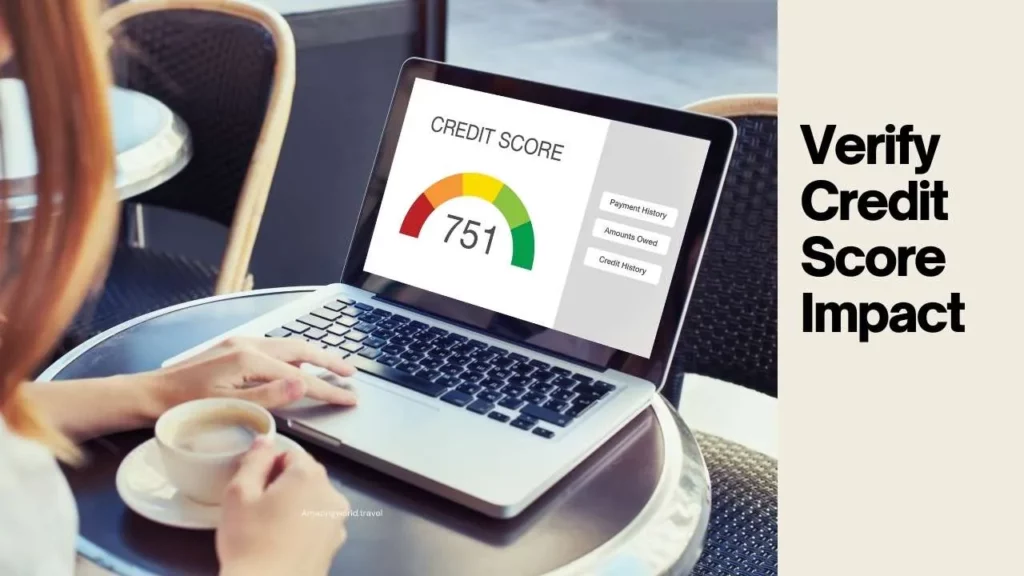Money Back Guarantee: 10 The Hidden Truth of Car Finance Scandals (2024 Updated)
What is Meant by a mis-sold car finance scandal?
A mis-sold car finance scandal refers to instances where individuals are provided with misleading or inaccurate information during the process of purchasing a car through financing. In such cases, the terms and conditions of the financing arrangement may not align with what was initially communicated or promised to the consumer.
Mis-selling can take various forms, including the failure to fully disclose interest rates, imposition of unnecessary fees, inadequate explanation of contractual terms, or the inclusion of unnecessary insurance add-ons without proper consent.
Essentially, individuals may find themselves in a financial agreement that does not reflect the fair and transparent terms they were led to believe, resulting in financial harm and the need for corrective actions, such as refunds or compensation. Such scandals often prompt regulatory scrutiny, legal actions, and industry reforms to protect consumers from deceptive practices in the car finance market.
10 Ways to Verify Mis-Sold Car Finance (2024 Edition)
1. Check Your Contract
Checking your car finance contract is a crucial first step in verifying whether it has been mis-sold. Take the time to thoroughly review the terms and conditions outlined in the contract you signed when purchasing your car. Pay close attention to the details regarding interest rates, fees, and any additional services or products included in the agreement.
Look for any discrepancies between what you were initially told during the sales process and what is documented in the contract. By scrutinizing the contract, you can identify potential misrepresentations or omissions that may indicate a mis-sold car finance deal. If you notice any discrepancies, it’s essential to further investigate and take appropriate steps to address the issue, such as seeking professional advice or contacting the finance company for clarification.
2. Examine Interest Rates and Fees
When verifying whether your car finance has been mis-sold, a critical aspect to examine is the interest rates and fees associated with the loan. Carefully review the contract to identify the exact interest rate you agreed upon during the purchase.
Ensure that this rate aligns with what was discussed and promised by the salesperson. Pay close attention to any additional fees, such as administration fees or service charges, and confirm whether they were clearly explained to you at the time of the agreement.
Compare the interest rates and fees outlined in the contract with the industry standards and prevailing market rates. If you discover that the rates are substantially higher than what is reasonable or if there are hidden fees that were not disclosed upfront, it could be an indication of mis-selling.
In such cases, consider seeking advice from financial experts or reaching out to the finance company for clarification. Identifying discrepancies in interest rates and fees is crucial in determining whether your car finance agreement is fair and transparent or if there’s a possibility of mis-sold terms.
3. Scrutinize the Sales Process
During the car purchasing process, closely examine how the sale was conducted. Focus on the interactions with the salesperson and the information provided. Here are key points to consider:
- High-Pressure Tactics: Investigate whether high-pressure tactics were employed to push you into a quick decision. Misleading sales practices can often involve creating a sense of urgency.
- Transparency in Information: Assess whether the salesperson was transparent in providing information about the car financing terms. Ensure that all aspects of the deal are communicated.
- Understanding Your Needs: Reflect on whether the salesperson took the time to understand your financial situation and needs before recommending a specific financing option.
- Documentation of Promises: Check if any promises made during the sales process are documented in the final contract. This helps verify whether what was verbally communicated aligns with the written agreement.
4. Evaluate Insurance Add-ons
Another crucial aspect to scrutinize is the inclusion of insurance add-ons in your car finance deal. Here’s what to look for:
- Optional vs. Mandatory: Determine whether insurance add-ons were presented as optional or if they were portrayed as mandatory for securing the financing. Misrepresentation can occur if you were led to believe these were obligatory.
- Relevance to Your Needs: Evaluate the relevance of the insurance add-ons to your specific needs and circumstances. Ensure that you were not sold unnecessary coverage that does not benefit you.
- Clear Explanation: Confirm whether the salesperson provided a clear and detailed explanation of each insurance add-on, including its cost, coverage, and how it would impact your overall financing arrangement.
- Consent and Disclosure: Check if you provided explicit consent for the inclusion of insurance add-ons and whether the terms were fully disclosed. Mis-selling can occur if this information was not adequately communicated.
5. Claims Issue
When investigating potential mis-selling of car finance, it’s important to examine any claims issues that may have arisen. Here are key considerations:
- Check for Previous Claims: Investigate if there have been any previous claims or complaints related to mis-selling by others who have dealt with the same finance company or dealership.
- Review Company Reputation: Research the reputation of the finance company or dealership involved. Look for customer reviews, testimonials, or any reported issues regarding mis-selling claims.
- Contact Regulatory Bodies: If you suspect mis-selling, consider contacting relevant regulatory bodies or consumer protection agencies to inquire about any claims filed against the company.
6. Assess Your Financial Situation
Evaluating your financial situation at the time of the car purchase is crucial in determining if mis-selling may have occurred. Consider the following:
- Income and Expenses: Assess your income and expenses to understand your financial capacity when entering into the car finance agreement. Mis-selling can occur if the deal did not align with your financial capabilities.
- Budget Alignment: Check whether the monthly repayments and overall cost of the car aligned with your budget. Mis-selling may be indicated if the financial burden was not adequately considered.
- Documentation of Affordability: If possible, review any documentation or assessments conducted by the dealership to verify your affordability. Mis-selling can occur if this was not done appropriately.
7. Research Market Rates by Consulting a Finance Advisor
Understanding market rates is a critical step in evaluating the fairness of your car finance agreement. Consulting with a finance advisor can provide valuable insights and ensure that you are receiving a deal aligned with industry standards. Here’s how to navigate this process:
- Engage a Qualified Finance Advisor: Seek the assistance of a qualified finance advisor or consultant. Ensure they have expertise in the automotive financing sector and can provide unbiased advice.
- Share Your Agreement Details: Share the specific details of your car finance agreement with the advisor. This includes interest rates, fees, and any other relevant terms outlined in your contract.
- Discuss Current Market Conditions: Have a conversation with the finance advisor about the prevailing market conditions for car financing. This discussion should include typical interest rates and terms offered in the current financial landscape.
- Compare with Industry Standards: Request the finance advisor to compare the terms of your agreement with industry standards. This involves assessing whether your interest rates and fees fall within the acceptable range based on current market rates.
- Evaluate Competing Offers: Inquire about any competing offers or financing options available in the market. This comparison can reveal whether your agreement stands out as unusually unfavorable.
- Receive Professional Opinion: Based on the analysis, seek the finance advisor’s professional opinion on the fairness of your car finance deal. They can provide insights into whether the terms align with what is considered reasonable and transparent in the industry.
- Consider Alternatives and Refinancing: If your agreement appears less favorable, discuss potential alternatives or refinancing options that may be more in line with market rates. A finance advisor can guide you on steps to improve your financial situation.
- Document Recommendations: Document the recommendations and insights provided by the finance advisor. This documentation can serve as valuable evidence if you need to address potential miss-selling with the finance company or regulatory bodies.
8. Verify Credit Score Impact
Checking how your car finance agreement has impacted your credit score is crucial in assessing potential mis-selling. Follow these steps:
- Obtain Your Credit Report: Obtain a copy of your credit report from a reputable credit bureau. Review it to understand your credit score and any changes that may have occurred.
- Compare Promised Impact: Compare the actual impact on your credit score with what was communicated during the car financing process. Mis-selling may be indicated if the impact is significantly different from expectations.
- Identify Negative Changes: Look for any negative changes or discrepancies in your credit report that can be attributed to the car finance agreement. Addressing these issues promptly is essential.
9. Legal Implications and Consumer Rights
Understanding the legal aspects and your consumer rights is crucial in verifying potential mis-selling. Here’s what you should consider:
- Research Relevant Laws: Research the laws and regulations related to car finance in your jurisdiction. Understand the legal framework that governs consumer rights in such agreements.
- Identify Consumer Protections: Identify specific consumer protections that may apply to mis-selling situations. This can include provisions that allow you to seek remedies or file complaints.
- Consult Legal Professionals: If you suspect mis-selling, consult with legal professionals who specialize in consumer rights or contract law. They can provide advice on the legal implications and potential courses of action.
10. Utilize Online Tools and Calculators
Online tools and calculators can be valuable resources in independently assessing your car finance agreement. Follow these steps:
- Affordability Calculators: Use affordability calculators to ensure that the monthly repayments align with your budget. Verify if the figures match the terms agreed upon in your contract.
- Interest Rate Comparison Tools: Utilize online tools to compare prevailing interest rates for car financing. This comparison helps determine whether the interest rate in your agreement is within the reasonable range for the market.
- Hidden Fee Checkers: Employ online tools to identify potential hidden fees or costs associated with car finance. Cross-reference the fees in your contract to ensure transparency.
11. Contact Customer Service
Directly engaging with the customer service department is a proactive step in addressing concerns related to potential mis-selling. Here’s how to approach it:
- Document Your Concerns: Prepare a list of specific concerns or discrepancies in your car finance agreement. Clearly articulate your questions regarding interest rates, fees, and any other issues.
- Request Clarification: Contact customer service to seek clarification on the identified concerns. Ensure you document their responses for future reference.
- Escalate if Necessary: If the initial contact does not resolve your concerns, be prepared to escalate the issue within the customer service hierarchy or seek guidance from relevant regulatory bodies.
Conclusion
if you think you were given the wrong deal when buying a car, there are steps you can take to check and fix it. Start by looking at your car contract and checking if what you were promised matches what’s written. Also, see if the interest rates and extra fees are fair. If things don’t add up, consult a finance advisor or someone who knows about money to get their opinion.
You can also check if others have similar problems by looking at complaints or cases. If you find issues, contact the company that gave you the car loan and ask questions. If that doesn’t work, you can complain to higher authorities who oversee these kinds of problems.
Remember to keep records of everything, like emails and letters, and consider getting help from legal experts if needed. It might take some effort, but by following these steps, you can work towards fixing any problems and getting the money you deserve.
How much did you like Our detailed Unraveling the Car Finance Scandal: A Consumer’s Guide to Identifying, Addressing, and Reclaiming Mis-Sold Deals? Review Also, please share these Blogs with your friends on social media.
Related Article –
- Road Trips Ideas | 12 Tips to Prepare Your Car for a Long Road Trip?
- Best Rental Cars For Travel Adventures

































